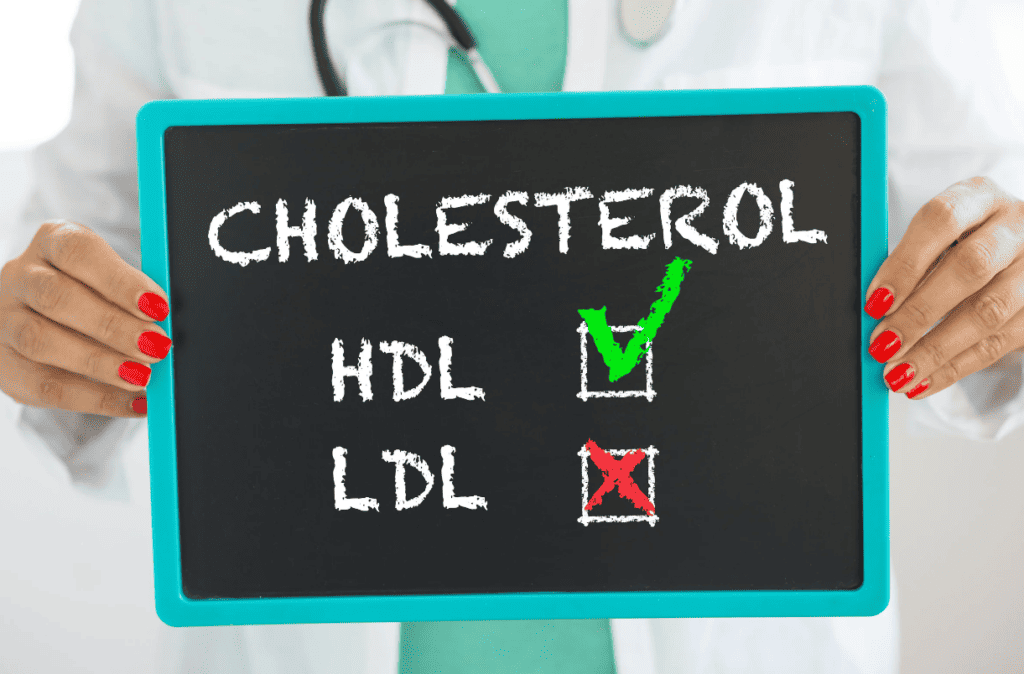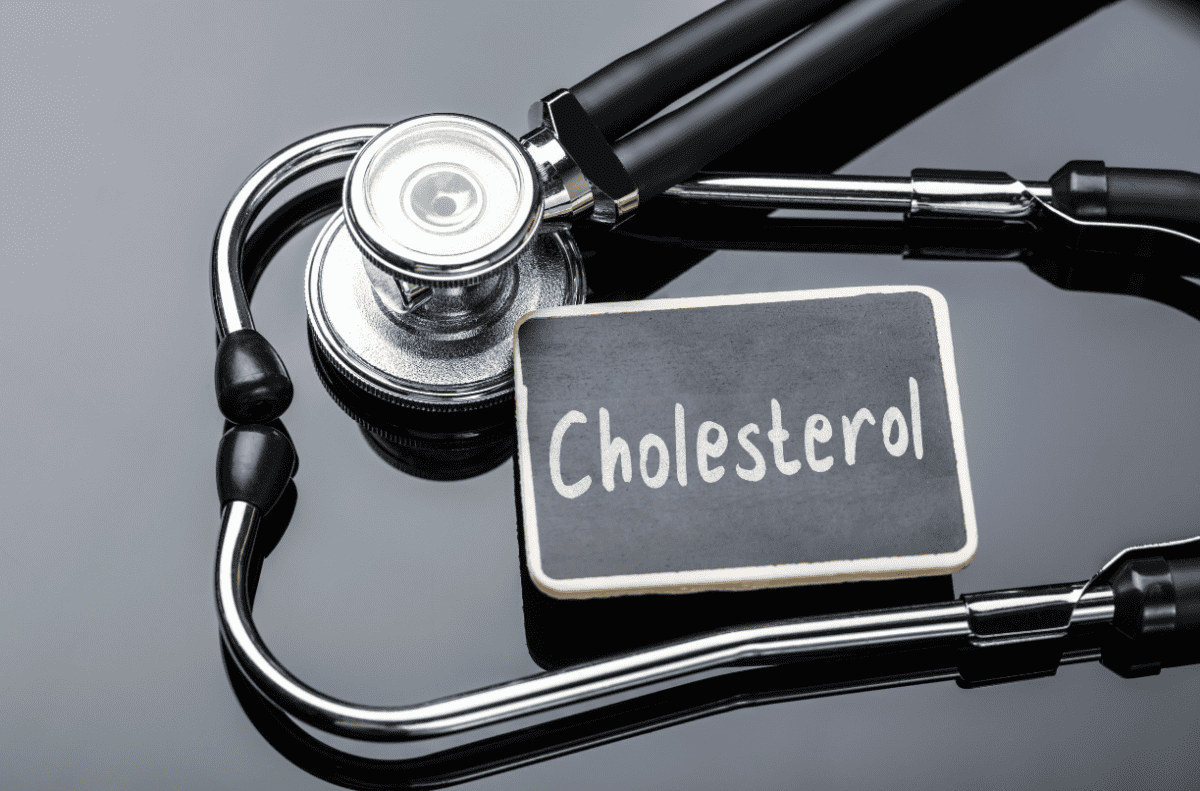Today, stress has become a commonplace companion, affecting our health in more ways than we might realize. One lesser-known impact of prolonged stress is on our cholesterol levels—a key factor in heart health.
That said, you must understand the layers of this complex relationship and explore how the psychological strains we face can directly influence our cardiovascular system.
Below, we will discuss the importance of managing stress for our hearts, unpacking the science behind stress-induced cholesterol changes. Let’s unravel the ties between our mental and physical health, offering insights and strategies to maintain a balanced lifestyle amidst the chaos of modern life.
Understanding Cholesterol
The waxy material in your blood, called cholesterol, is necessary to develop healthy cells. However, excessive cholesterol can cause heart attacks and other major cardiac issues.
It’s crucial to differentiate between the two types of cholesterol: LDL (low-density lipoprotein), often dubbed “bad” cholesterol, and HDL (high-density lipoprotein), known as “good” cholesterol.
High levels of LDL can lead to plaque buildup in your arteries, increasing your risk of heart disease, whereas HDL aids in removing cholesterol from your bloodstream, protecting against heart disease.

For individuals with high cholesterol levels, medication might be necessary alongside lifestyle changes. The most common class of drugs used to lower cholesterol is statins. Statins work by blocking a substance your body needs to produce cholesterol, lowering the levels of bad cholesterol and triglycerides in the blood while boosting the level of good cholesterol.
Other medications include bile acid-binding resins, cholesterol absorption inhibitors, PCSK9 inhibitors, and fibrates. Each has unique benefits and mechanisms of action tailored to different patient needs and conditions.
It’s essential to consult with a healthcare professional and know the cholesterol medication details Before starting any cholesterol medication. Monitoring the effectiveness, side effects, and interactions with other drugs is crucial to managing your cholesterol levels safely.
The Stress Factor
It is known that stress levels can indirectly lead to higher levels of unhealthy cholesterol. But where does stress fit into this equation? Common responses to stress can partially explain the connection between stress and elevated cholesterol levels.
During challenging periods, individuals might indulge in unhealthy eating habits, leading to weight gain, engage in smoking, consume excessive alcohol, or prefer sedentary activities over physical exercise. Each of these behaviors contributes to an increased likelihood of developing high cholesterol.
High levels of stress could potentially exacerbate existing high cholesterol conditions. Even young, physically fit, and generally healthy individuals might experience elevated cholesterol levels during stressful periods.
When the body undergoes stress, it responds by releasing cortisol and adrenaline. These hormones prepare your body for a ‘fight or flight’ response.
While beneficial for short-term survival situations, prolonged exposure to these stress hormones can have adverse effects. For instance, cortisol can lead to weight gain and higher blood pressure, which are risk factors for elevated cholesterol levels.
Unveiling the Connection
Research indicates that individuals experiencing consistent, high levels of stress may be more susceptible to developing elevated cholesterol levels.
According to this study, sudden mental stress can lead to quick rises in serum cholesterol concentration. It can potentially enhance hemoglobin concentration and hematocrit (decreasing plasma volume).
Thus, the surge in serum cholesterol levels following an acute mental stress episode is similar to what occurs with standing and might indicate hemoconcentration rather than changes in lipoprotein metabolism.
Additionally, research involving 208 college-aged students (30 years old or younger) conducted blood screenings coinciding with their examination period. During this period of heightened stress, the findings revealed elevated concentrations of cortisol and adrenaline, as well as increases in both total and LDL cholesterol levels.
Lifestyle Adjustments
Thankfully, various strategies exist to manage stress and, by extension, help control cholesterol levels. Regular physical activity, adequate sleep, a balanced diet, and mindfulness practices like meditation have all been shown to mitigate stress and its physical repercussions.
Resist the temptation to consume excessive amounts of food, indulge in unhealthy snacks or alcoholic beverages, or use tobacco as a stress relief method. While these habits might offer temporary solace, they are fleeting solutions with lasting negative impacts on your well-being.
Such negative routines may also lead to elevated cholesterol levels. Lifestyle modifications such as incorporating regular physical activity, eating a wholesome diet, and abstaining from tobacco use can help control cholesterol levels and reduce stress.

Reach out to friends, loved ones, or colleagues who brighten your day. Arrange for a face-to-face meeting, a telephone conversation, or a virtual catch-up. Consider dedicating some of your time to volunteer work within your community. Engaging in acts of kindness towards others can elevate your spirits and relieve stress.
Listening to music is another effective method for managing stress; slower melodies can calm and relax you, whereas up-tempo rhythms are beneficial when you need a lift in mood.
Additionally, journaling or blogging offers a productive outlet for expressing your thoughts, allowing you to process emotions through writing rather than letting stress accumulate internally.
Final Words On Stress and Cholesterol
The intricate connection between stress and cholesterol underlines the importance of holistic health—taking care of our mental and physical well-being. By addressing stress, we can improve our mental health and quality of life and take a significant step towards safeguarding our heart health.


